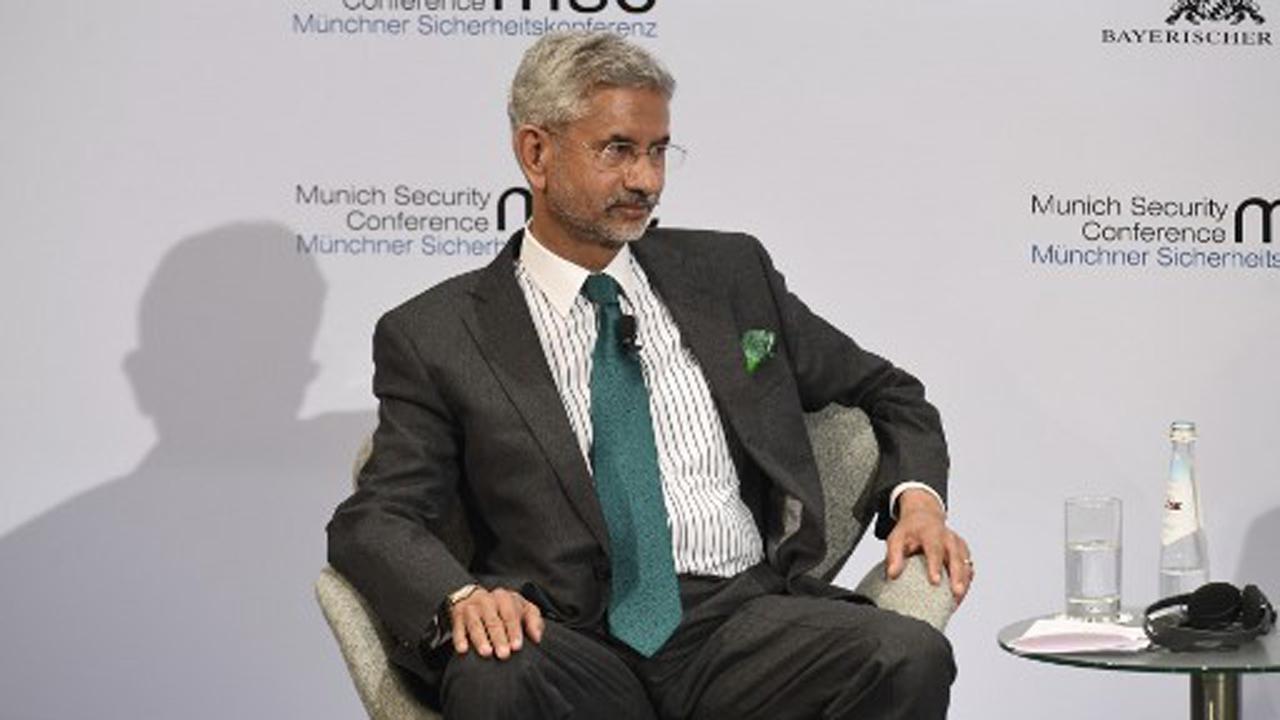Jaishankar said that the Chinese actions in eastern Ladakh not only signalled a disregard for commitments about minimising troops level but also showed a willingness to breach peace and tranquillity

India's Minister of External Affairs Subrahmanyam Jaishankar. Pic/AFP
External Affairs Minister S Jaishankar today outlined eight broad principles for repairing ties between India and China that included strict adherence to all agreements on management of the Line of Actual Control, mutual respect and sensitivity, and recognising each other's aspirations as rising Asian powers.
ADVERTISEMENT
In an address at an online conference on India-China ties, Mr Jaishankar said the events in eastern Ladakh last year have profoundly disturbed the relationship and asserted that any attempt to unilaterally change the status quo along the LAC is "completely unacceptable".
The External Affairs Minister said any expectation that the situation at the border "can be brushed aside and life can carry on undisturbed" is simply not realistic.
Mr Jaishankar said the India-China relationship is truly at the crossroads today and choices that are made will have profound repercussions not just for the two nations but for the entire world.
He said the Chinese actions in eastern Ladakh not only signalled a disregard for commitments about minimising troops level but also showed a willingness to breach peace and tranquillity.
"Significantly, to date, we have yet to receive a credible explanation for the change in China's stance and massing of troops in border areas," he said at the All India Conference on China Studies.
Elaborating on eight points for moving forward in bilateral ties, the External Affairs Minister said agreements already reached on management of the Line of Actual Control must be adhered to in their entirety and in letter and spirit.
"Whether handling of the border areas is concerned, the Line of Actual Control must be strictly observed and respected. Any attempt to unilaterally change the status quo is completely unacceptable," he said.
While both nations are committed to a multi-polar world, Mr Jaishankar said, there should be a recognition that a multi-polar Asia is one of its essential consequences.
"Obviously each state will have its interests, concerns and priorities, but sensitivity to them cannot be one-sided. At the end of the day relationships between major states are reciprocal in nature," he said.
Mr Jaishankar said as rising powers, each nation will have their own set of aspirations and their pursuit to it cannot be ignored.
He said peace and tranquillity in border areas is the basis for development of ties with China in other domains and if it is disturbed, "so inevitably is rest of the relationship".
The External Affairs Minister said far from mitigating already existing differences, events of 2020 have actually put the relationship under "exceptional stress"
Any expectation that the situation at border can be brushed aside and life can carry on undisturbed is simply not realistic, he said. He said if ties are to progress, policies must take into account the learnings of the last three decades.
This story has been sourced from a third party syndicated feed, agencies. Mid-day accepts no responsibility or liability for its dependability, trustworthiness, reliability and data of the text. Mid-day management/mid-day.com reserves the sole right to alter, delete or remove (without notice) the content in its absolute discretion for any reason whatsoever
 Subscribe today by clicking the link and stay updated with the latest news!" Click here!
Subscribe today by clicking the link and stay updated with the latest news!" Click here!






